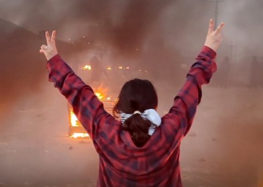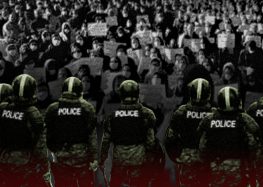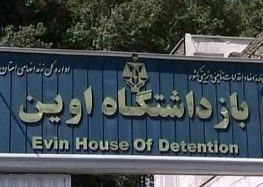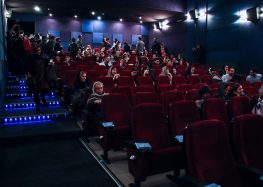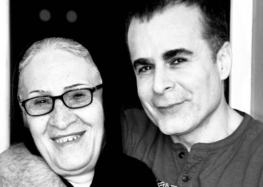Famed Iranian Playwright Mohammad Rahmanian Charged for Allegedly Featuring Female Soloist

Complaint Brought by Islamic Revolutionary Guard Corps
Prominent Iranian theater director and playwright Mohammad Rahmanian has been charged with “propaganda against the state” based on a complaint by the Islamic Revolutionary Guard Corps (IRGC) for allegedly featuring a female soloist in his play.
He was also detained and released later that day after responding to a summons to appear at a court in Tehran on January 6, 2018, to answer questions about the play, “Old Songs: Paykan Javanan.”
Rahmanian reacted to the charge in an interview with the daily Ghanoon newspaper on January 7.
“I must say that I’m very upset and insulted about being charged with ‘propaganda against the state,’ which suggests I’m some sort of an anti-revolutionary,” he said. “I have been living in Iran for the past 37 years and working in theater and cultural fields since 1981.”
“It seems like there’s some spiteful effort to sacrifice the theater community for no reason,” Rahmanian added.
A source close to the director described to the Center for Human Rights in Iran (CHRI) the events leading up to Rahmanian’s detention. The source added that Hana Kamkar, the female singer who allegedly performed solo in “Old Songs: Paykan Javanan,” was also questioned several times at Branch 21 of the Islamic Guidance Court.
“Mr. Rahmanian and his theater group staged the play in November and December of 2017 but four days before the last performance, they were told that it was going to be banned because of a scene where Hana Kamkar sings solo,” said the source.
The source, who requested anonymity for security reasons, also told CHRI that Rahmanian had received approval from the Ministry of Culture and Islamic Guidance, which is required before artists can publicly display their work in Iran, but unknown security forces later intervened, overriding the ministry’s go-ahead.
“We showed the authorities video tapes of the play recorded by our own crew, which showed that Ms. Kamkar enters the stage accompanied by another woman and they do a song together,” added the source. “When the authorities saw the film, they allowed the play to go on as scheduled through the last day.”
The source told CHRI that the play’s organizers were not aware that someone had secretly recorded performances of it at the Shahrzad Theater and then handed the recordings over to unknown authorities.
“A few days after the end of the play’s run, Mr. Rahmanian’s passport was taken away at the airport as he was about to leave the country to attend a film festival in Africa,” said the source. “He was told he was not allowed to travel and needs to appear at Branch 21 of the Islamic Guidance Court to answer some questions.”
The source continued: “Mr. Rahmanian went there three or four times and answered questions about his play and a female singer’s solo performances. Finally, Mr. Rahmanian was able to get the ban on the play lifted by leaving a security deposit, and then he traveled to Africa.”
“When he returned to Iran, Rahmanian was not bothered by the authorities until January 4, 2019, when he received a text message ordering him to make an appearance at the same court within five days,” the source added.
On January 5, Rahmanian went to the court and “answered some questions for a couple of hours and was asked to return the next day. On Sunday [January 6], he made an appearance and was told that he must post bail to be released. Then Shahram Gilabadi, the head of the Theater House, along with his lawyer, came to the court and left a deposit and Mr. Rahmanian was released.”
Since Iran’s 1979 Islamic Revolution, women have not been allowed to sing solo in front of mixed-gender audiences. The policy is not specifically dictated in Iranian law but could be seen by the authorities as a public display of immorality, which can be punished with prison time.
A founder of new age theater in Iran who has staged many memorable plays in the capital, Rahmanian, 57, ranks among the country’s most famous directors.
In November 2017, Rahmanian described his play as “the story of the places which are no more; those that were demolished, forgotten or their functions have changed.”
“Not so long ago, there were promenades and recreational places in Tehran like the Funfair on Vanak Square and drive-in cinemas in Tehran Pars district and another one on Vanak Square, which opened in 1967 and 1969 respectively. Today, all of these have ceased to exist,” he added.

